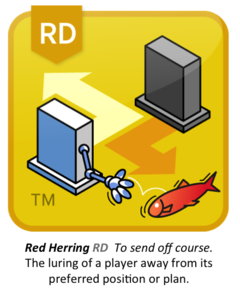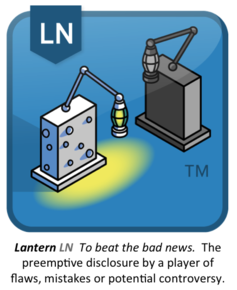If you're a CEO in the habit of telling media what to think, think again. There are other plays and ways to drive your agenda.
Consider the recent unforced errors by Mitt Romney who, after trashing Donald Trump, was asked by Meet The Press host Chuck Todd why he so happily accepted Trump's endorsement four years ago? Instead of owning up to an awkward truth, Mitt reverted to talking points. Watch the clip from 3:00 to 7:00.
Q. "Were you just saying something you had to say four years ago in order to accept [Trump's] endorsement?" Romney: "Donald Trump has made a lot of money for himself...but it you look at his record overall..."
Q. "Why'd you say so many things about his business career when, clearly, you're not impressed?" Romney: "You know, he's made a lot of money for himself...you can't also ignore the fact that he's had a lot of failures..."
Q. "Do you believe you mainstreamed Trump, made him acceptable, and do you regret it?" Romney: "There are a lot of people who supported me...I had 61 million people vote for me in the general election..."
The precise influence strategy behind Romney's words was a red herring, a diverting play in The Standard Table of Influence. He tossed the herring in hopes that viewers might look the other way. Never mind what I did in 2012, look at what Trump's doing in 2016! But Romney's diversion was all too obvious. So much so that the story became as much about him as The Donald. Silly Mitt.
What play should Romney have run to counter Todd's baits? One option is the counter-intuitive lantern, a freezing strategy that volunteers information before someone else does it for you. For proud politicos like Romney it's not an easy one to employ. After all, it establishes some degree of culpability. But to do any less, at least in this case, was to disrespect a discerning audience.
To any of Todd's tough questions, Romney would have been better off with words to this effect: You're right, I feel foolish. I feel like I was played. Or, You're right, I was thinking more about votes than my own ethics. From there, he could easily have offered his attacks on Trump. And only then.
A lesson to CEOs and politicos: Do your homework and let your audience decide who or what is fishy. If you presume to render the verdict, you'll be judged as much for your motive as your message.
Graphics courtesy of Playmaker Systems, LLC


